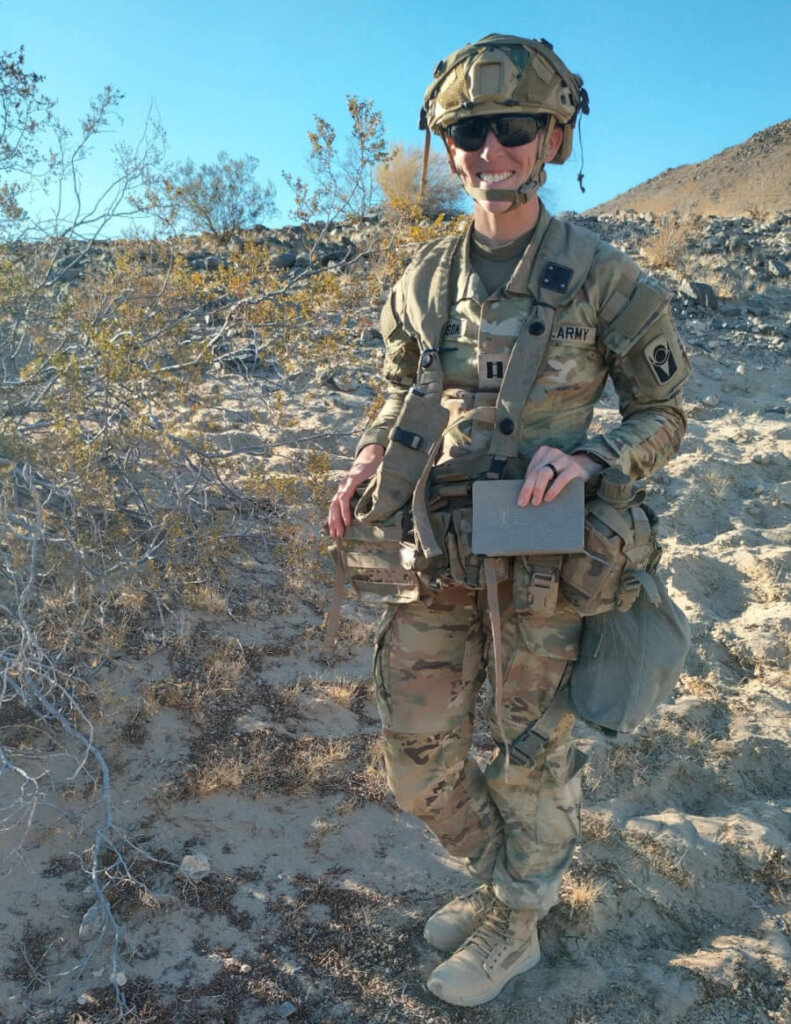Delivering mail to soldiers during training might seem like a silly task, but one guardsman believes that if you don’t make the most out of it, the soldiers won’t get the most out of it.
“It starts from the top and goes down to the bottom. Like it always does in the National Guard,” said Florida Army National Guard Capt. Lauren Dickerson, an adjutant general officer with the 53rd Brigade Support Battalion, 53rd Infantry Brigade Combat Team.
Dickerson and her team handled and processed all of the brigade’s logistical matters, including mail delivery, at the National Training Center (NTC) in Fort Irwin, California, during a summertime pre-deployment warfighting exercise.
Initially, Dickerson hand-delivered mail because she said she wanted to experience what other mail carriers went through. Every soldier she handed a letter to responded with a smile.
“It makes them feel a part of something once they get that mail. I mean, we got our phones taken away for 14 days straight,” Dickerson said. “So many of these soldiers had no communication outside of the mail system. And so when they would receive that piece of letter for somebody they haven’t talked to in 14 days, they would just get so excited and it would boost the morale and then it just pushed them a little bit forward.”
Mail and handwritten letters have long been considered a way to boost morale among service members, and delivery is considered imperative regardless of circumstances. During World War II, the 6888th Central Postal Directory Battalion was tasked with sorting and delivering a backlog of mail. During the COVID-19 pandemic, a task force led by the New York Army National Guard’s 42nd Infantry Division helped deliver mail.
Spc. Gabriel Munoz, B Co., Brigade Support Battalion, said via email that receiving mail while training at NTC was a “good privilege.”
“In the box, it gave me one more thing to look forward to each day,” Munoz said. “Getting mail in the field was a great way to maintain communication with those back home.”
Sgt. Shania Grimes, Headquarters and Headquarters Co., 53rd Brigade Support Battalion, also viewed receiving mail during training as a morale booster, echoing Dickerson’s sentiment.
“The training environment itself is already physically and mentally demanding and being cut off from our phones adds an extra layer of isolation and discomfort,” Grimes said via email. “So, getting mail, reading a few kind words from loved ones meant the world to me. It brightened even the toughest days and reminded me that there was support and love waiting for me back home. That little connection gave me the strength and motivation to push through and finish strong.”
The mail delivery, according to Grimes, played a “huge role” in maintaining their mental and emotional well-being.
“In such a high-stress environment, even a small gesture like receiving a letter helped keep spirits high,” she said. “It reminded us that we weren’t alone out there, that people cared, that we mattered.”
Dickerson and her team delivered more than 250 pieces of mail in a 14-day period.
“It was a rewarding but challenging piece in the sense of multiple soldiers through all these states and territories that were attached to us. But in the end, we got the job done. We had great support higher, from higher up, all the way down to the lowest level. And I’m just happy that the soldiers were able to get everything that they could,” Dickerson said.

